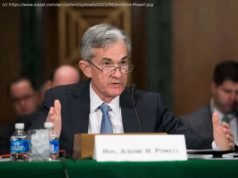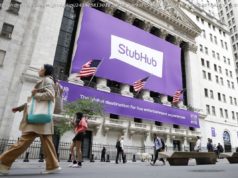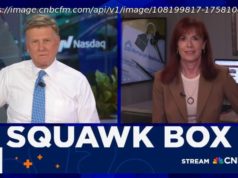He’s just a bad messenger for the right message.
If Elon Musk takes his electric car company and goes home, investors will be poorer for it.
Tesla Inc.’s colorful co-founder and CEO tweeted on Tuesday that he’s considering taking it private after complaining for years about life atop a public company. As Bloomberg News recalled on Tuesday, Musk expressed “his frustrations with having taken Tesla public” in an interview in January 2015 and has carped about the market several times since then.
Hours after the tweet, Musk laid out his beef with public markets in an email to Tesla employees. The gist is that 1) the volatility of Tesla’s stock is a distraction; 2) the scrutiny around quarterly earnings creates pressure to focus on short-term results at the expense of longer-term ones; and 3) short-sellers, or those who bet against the company, have an incentive to attack it.
My colleague Matt Levine rightly points out that Musk, “who is constantly tweeting attacks on journalists and jokes about bankruptcy, who is also busy running two other companies,” isn’t the best-suited critic of the market’s shortcomings. But don’t confuse the message with the messenger. Regardless of your opinion of Musk or the wisdom of taking Tesla private, with the number of companies listed on U. S. stock exchanges down to roughly 3,600 at the end of 2017 from more than 7,600 in 1997, it’s a good time to ask whether public markets are working the way they should.
Let’s start with Musk’s first complaint. He’s right that Tesla has been whipsawed more than the average stock. Tesla came to market as a mid-cap company with a $2.2 billion market value in June 2010 and has since swelled to $63 billion. The stock’s standard deviation — a common measure of volatility — has been a breathtaking 56 percent since then, compared with just 13 percent for the Russell 1000 Equal Weight Index, a collection of large- and mid-cap stocks.
Tesla isn’t alone, however. Data compiled by Dartmouth professor Ken French show that companies with high valuations and low profitability tend to be bumpier than the broader market. An equal-weighted basket of large-cap stocks with the highest price-to-book ratios and lowest profits had a standard deviation of 22 percent since July 2010, or nearly twice as high as the Russell index.
Tesla is among the very richest. Its P/B ratio of 16.2 is more than six times higher than the Russell index’s ratio of 2.6. And it hasn’t yet turned a profit. So it’s understandable that its stock is more volatile than most.
One reason for that higher volatility is related to Musk’s second complaint. Investors pay dearly for companies such as Tesla because they believe future profits will justify the price. Those profits rarely materialize overnight, but that doesn’t stop analysts from raising expectations every quarter and demanding that companies play along. When those companies fall short, their stocks are punished, a result that they understandably try to avoid by obsessing over each quarter.
That’s no way to run a company or a market. In a recent op-ed, Warren Buffett and Jamie Dimon called for companies to stop providing quarterly earnings guidance, saying that, “Short-term-oriented capital markets have discouraged companies with a longer-term view from going public.” I would go further. Investors should care a lot about how companies perform over reasonably long periods and not at all about what happens from quarter to quarter. So there’s no reason investors need quarterly earnings estimates from analysts or anyone else, and even less reason companies should have to worry about keeping pace with them.
Taking a longer-term view would not only dampen volatility, it would also ease the pressure from short-sellers. The combination of a rich stock price and an uncertain future is a tempting target. But if markets were more focused on long-term results, fewer short-sellers would hang around for a payoff.
Not everyone agrees that the shrinking number of public companies is worrisome. A market of 3,600 stocks provides plenty of choices, some say. And companies such as Tesla rarely live up to the hype. That basket of high-valuation, low-profitability stocks returned 5.2 percent annually from July 1963 through June, including dividends — the longest period for which returns are available — while the S&P 500 Index returned 10.2 percent.
But that misses the point. Markets should aspire to provide the same investing opportunities for all investors. When firms such as Tesla go private, or a growing stable of unicorns such as Uber, Airbnb or Musk’s Space X stay private, only well-heeled investors can partake in those ventures. The best ideas will also have the easiest time attracting private capital, forcing those with dimmer prospects to fish in public markets. That’s not a recipe for leveling the playing field.
And it’s not just ordinary investors who are worse off. One reason companies stay private is that it allows them to sidestep regulatory scrutiny and thereby strip investors of protections that public companies owe them, such as transparency and oversight.
Investors don’t have to take Musk’s plans seriously, but it’s a mistake to dismiss his grumblings about public markets. We’ll miss his company when it’s gone.
To contact the author of this story: Nir Kaissar at nkaissar1@bloomberg.net
To contact the editor responsible for this story: Daniel Niemi at dniemi1@bloomberg.net






